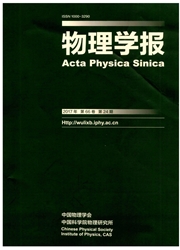

 中文摘要:
中文摘要:
该综述回顾了近期解析R矩阵方法结合半经典理论的发展,介绍其应用于线偏振光场下单活跃电子系统中的求解强场电离概率幅的过程[Torlina L,Smirnova O 2012 Phys.Rev.A 86 043408].解析R矩阵方法通过内外区域分割,可以获得对外区光电子的半解析描述.内区能够提供良好定义的边界条件,外区光电子波函数则可近似为Eikonal-Volkov解.进一步,使用稳相近似,可以将电离概率幅中的积分近似为半经典轨迹及相应相因子对应的分量之和.基于该方法讨论了不同电离时刻隧穿而出波包的形状,近似表现为以半经典轨线为中心的高斯型.在外光场与库仑势同时存在的情况下,亚周期非绝热修正对电离概率有不同的影响.作为特殊的案例,文中重点讨论在复时间平面上使用纯光驱动轨迹与库仑修正相因子研究光电子返回母核附近发生软回碰过程中的一系列关键环节以及对低能结构的影响[Pisanty E,Ivanov M 2016 Phys.Rev.A 93043408].在引入库仑势后,使用传统积分曲线存在一定的问题,因积分路径可能遭遇分支-切割面导致积分函数丧失解析性.为了克服该问题,隧穿电离后演化过程的时间被拓展到复平面,电子轨迹允许具有虚部.当回碰发生时,需要谨慎处理复时间平面上的分支-切割面.研究发现,复平面上的导航方法与最接近时间有关,最接近时间总存在于一对分支-切割面之间,它可以帮助规避不连续路径.最接近时间解的集合形成丰富的几何结构,使电子在回碰过程中表现出有趣的性质,与低能结构有关的回碰信息就隐藏在这些几何结构中,我们讨论了最接近时间方程解的拓扑结构随参数的变化以及设计路径搜索算法的依据,介绍了实验上与低能结构相关的可能观测到的现象.
 英文摘要:
英文摘要:
The semi-classical method based on the recently developed analytical R-matrix theory is reviewed in this work.The method is described with the application to ultra-fast strong-field direct ionization of atoms with one active electron in a linearly polarized field [Torlina L,Smirnova O 2012 Phys.Rev.A 86 043408].The analytical R-matrix theory separates the space into inner and outer regions,naturally allowing the possibility of an analytical or semi-analytical description of wave function in the outer region,which can be approximated by Eikonal-Volkov solutions while the inner region provides well-defined boundary conditions.Applying the stationary phase method,the calculation of the ionization amplitude is cast into a superposition of components from trajectories and their associated phase factors.The shape of the tunneling wave packets associated with different instants of ionization is presented.It shows the exponential cost of deviating from the optimal tunneling trajectory renders the tunneling wave packet a Gaussian shape surrounding the semi-classical trajectory.The intrinsically non-adiabatic corrections to the sub-cycle ionization amplitude in the presence of both the Coulomb potential and the laser field is shown to have different influences on the probability of ionization.As a specific study case,soft recollisions of the released electron near the ionic core is investigated by using pure light-driven trajectories with Coulomb-corrected phase factor [Pisanty E,Ivanov M 2016 Phys.Rev.A 93 043408].Incorporating the Coulomb potential,it is found problematic to use the conventional integration contour as chosen in other methods with trajectory-based Coulomb corrections,because the integration contour may run into the Coulomb-induced branch cuts and hence the analyticity of the integrand fails.In order to overcome the problem,the evolution time of the posttunneling electron is extended into the complex domain which allows a trajectory to have an imaginary component.As the soft recollision occurs,the calculat
 同期刊论文项目
同期刊论文项目
 同项目期刊论文
同项目期刊论文
 期刊信息
期刊信息
